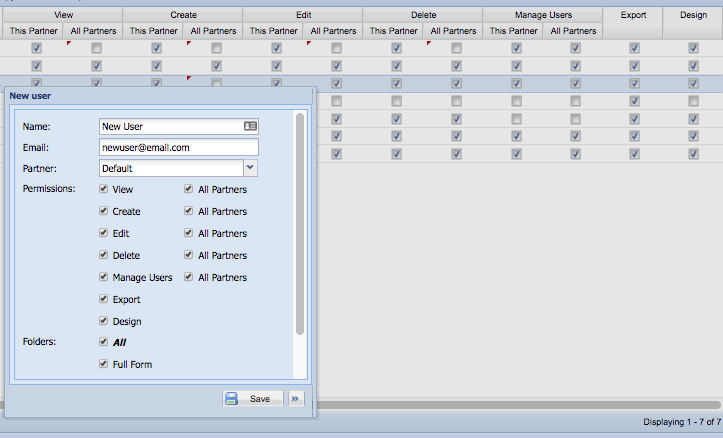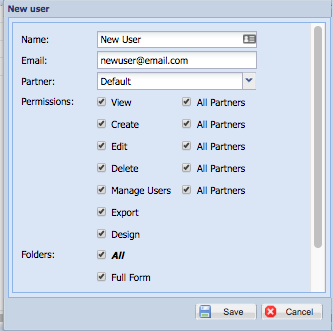New advanced permission types allow you to grant more granular permissions to users.

Managing the users of a database is an important aspect of ActivityInfo. It is crucial for an organization working with other partners and users to be able to define the correct user permissions for all the different types of users depending on their role and the desired level of access.
For this reason, with our latest release (Release 2.20, Jan 22, 2019) we have added three new permission types to ActivityInfo, giving you more options when it comes to enforcing data quality rules and controlling access to sensitive data. The new permission types are part of a development project sponsored by UNRWA in Jordan.
Previously, users could be assigned permissions such as View", "Edit", "Manage Users" and "Design". Now, in addition to these permission types, we are splitting the "Edit" permission into:
- Create - the permission to create a new record
- Edit - the permission to update an existing record
- Delete - the permission to delete an existing record
In addition, we are adding a new "Export" permission that will allow you to restrict the number of users who are able to export sensitive or confidential data through the user interface in bulk. The "Export" permission reflects the users "View" permission. This means that:
- For a user to be able to export data submitted by any partner, the user must also have a "View - All Partners" permission.
- For a user to be able to export data submitted only by users of the same partner, the user must also have "View" permission.
There will be no change to the existing users effective permissions. More specifically, users who currently have "Edit" rights will be granted "Create" and "Delete" rights automatically, and those who have "View" rights will automatically be granted "Export" rights.
The permissions dialog has been updated to look like the following:

The "View All", "Edit All"and "Manage All Users" permissions have been replaced with checkboxes to the left that determine whether each permission applies only to records that belong to the user's partner, or to all partners.
We hope the new permission types will facilitate your work and will ensure that your users are only accessing the required information.
Once again, we would like to heartily thank UNRWA in Jordan for sponsoring the development of these permissions types.
What do you think of the new permission types? Feel free to contact us and let us know!